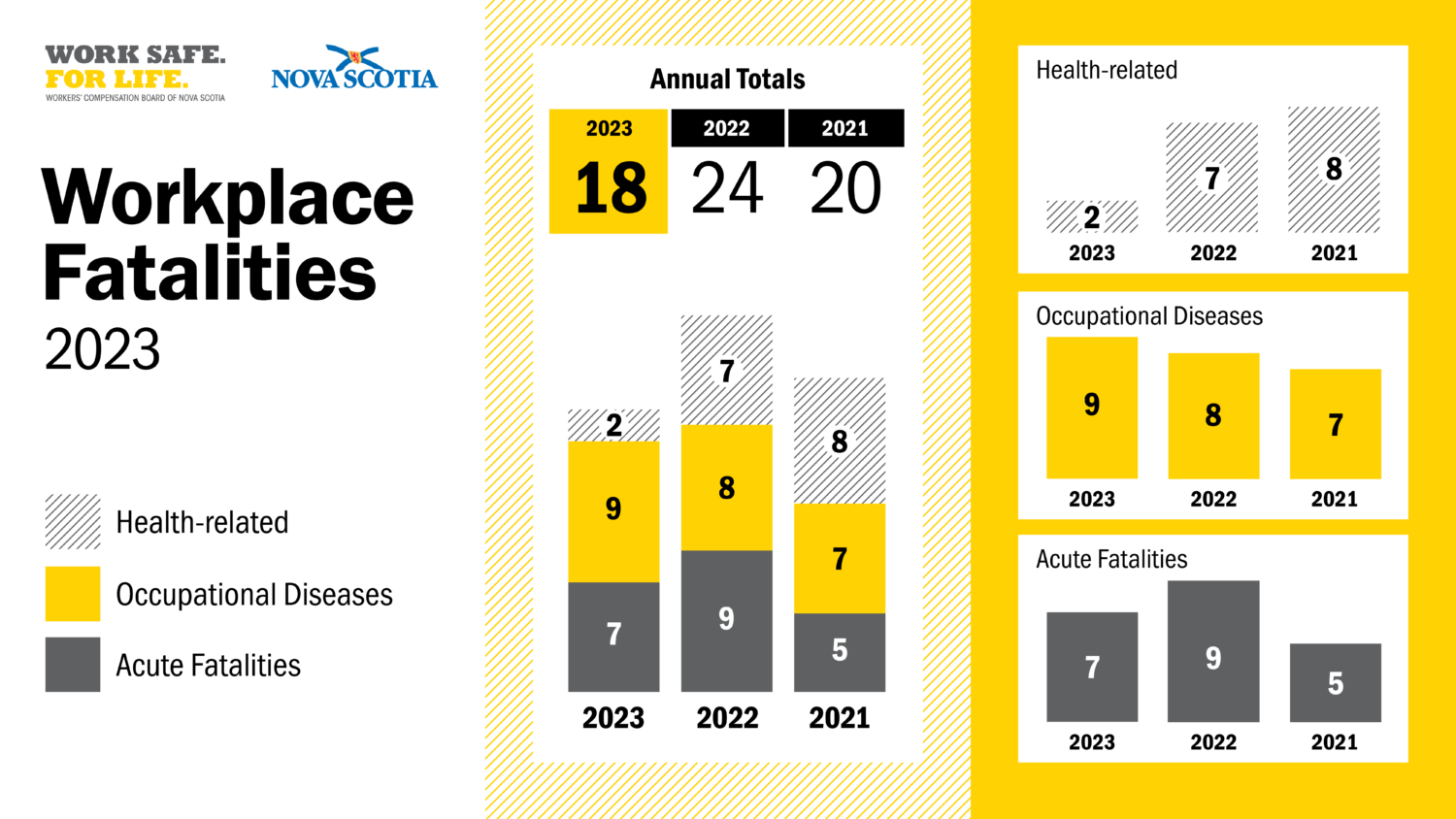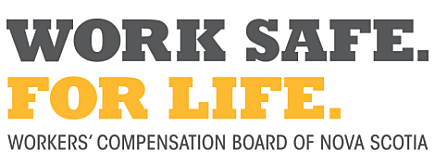HALIFAX, NS – Eighteen Nova Scotians died at work or because of their work in 2023. That tragic number is a decrease from 24 fatalities in 2022, but still a sobering reminder of the human impact of workplace tragedy, and a reminder that one workplace death is too many.

“On behalf of the Province, I want to extend my sincere condolences to anyone who is mourning the loss of a loved one who died at work or because of their work,” says Acting Minister of Labour, Skills and Immigration Timothy Halman. “Every person working in Nova Scotia should come home safe from work, every day. By prioritizing safety, we continue to honour those who tragically did not return home and their families who mourn their loss.”
Already in 2024, four Nova Scotians have died either at work, or because of their work, including two acute fatalities in the same week in February.
WCB CEO Karen Adams says the impact of a workplace death cannot be overstated.
“Workplace deaths may have decreased last year but the reality is that the lives of 18 grieving families were forever altered,” says Adams. “Their tragedy underscores the importance of our work in creating safer workplaces across Nova Scotia.”
There are three classifications of workplace fatalities: Acute, where an incident on the job, like a fall, drowning, or a motor vehicle accident, leads to a fatality; chronic (occupational disease), like mesothelioma or other work-related illnesses; and chronic (health), where a person dies while at work, but for health reasons which may or may not be related to their work.
Among the 2023 fatalities, seven resulted from acute traumatic injuries on the job, a decrease from nine in 2022. These acute deaths spanned various industries, including two in both construction and manufacturing.
There were 11 fatalities classified as chronic in 2023, compared to 15 in 2022. This includes nine deaths related to occupational diseases stemming from past exposures, as well as two caused by health-related issues like heart attacks. It’s important to note that while these deaths occurred at work, they may not necessarily have been caused by work.
For more detailed information on these classifications, please refer to the provided fact sheet.
Injury prevention is a critical component of creating safer workplaces. The provincial government and WCB are collaborating closely on a review of Nova Scotia’s workers’ compensation system to enhance the province’s workplace safety culture and improve the system for workers and employers.
The upcoming inclusion of gradual onset psychological injury as a compensable condition this fall will also provide increased protection for workers. This change, along with ongoing collaboration with safety partners and industries across the province, demonstrates a commitment from government and WCB Nova Scotia to prevent more workplace injuries and deaths.
WCB Nova Scotia, the Province of Nova Scotia, and the Nova Scotia Federation of Labour partner on an annual campaign recognizing the International Day of Mourning, and honouring the tragic impact of workplace fatalities and workplace injury. This year’s campaign revisits the story of Kyle Hickey, who died in 2008 while working at an autobody shop. View his story here.
Following a workplace tragedy, it can be difficult to know where to turn. Threads of Life is a national charity dedicated to supporting families during this very challenging time, providing an ongoing network of support. To learn more, visit threadsoflife.ca.
Media Contacts
For more information or to arrange an interview, please contact:
Caitie Clark
Communications Advisor, WCB Nova Scotia
902-329-0556 | caitie.clark@wcb.ns.ca
Sarah MacNeil
Communications Advisor, Department of Labour, Skills and Immigration
902-471-1574 |sarah.macneil@novascotia.ca

